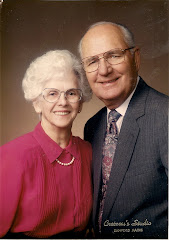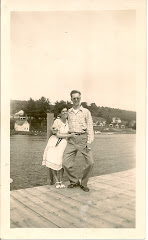
In order to find the door and the church my dad talks about, I have scoured the internet. I've googled German churches, Andechs, church doors, anything I could think of that might help me solve this mystery. Each time I shared these photos with my dad, he would say that they just didn't look familiar.
In April/May, I took a family medical leave to take care of my dad for a few weeks. At the time, I started scanning old family and military photos which he had. Dad would talk about each picture I found. I lament that I didn't take better notes at the time. I thought I had all summer to write this down...
I came across one small photograph of my father in his fatigues. It is no bigger than 2x3, is in black and white and is tattered a bit. Dad pointed to it and said nonchalantly, "That's in the town we are looking for." I said, "Huh?" as it was not quite sinking in. "That's me in front of the place I lived when I was in that town." WELL, WHY DIDN'T YOU SAY SO!!!!! Finally, a clue. The only clue.
My dad was in this town for only a month in the summer of 1945. WWII had just ended on May 8. Dad and those troops were there to do clean-up and to wait for further orders. My dad stayed in what he called a little hotel with a small restaurant downstairs. He said the rest of the soldiers lived and ate in a building across the street. He described his place as having a small courtyard in the front (which would be to his right in the pic) and a balcony off his room. See right above his head? That's the balcony. The window in the middle is actually a door to/from his room.
The photograph shows partial words on the building behind him. I took the photo to school to show our German teacher. He said the words were probably "Gastëtte Zum Seefeld." "Gastëtte" is a German word which means "restaurant or pub." The teacher said that sometimes these places also have guest rooms available. "Zum Seefeld" would mean something along the lines of "of the Seefelder," meaning that it would be "the pub of the Seefelder," or someone from the town of Seefeld. The teacher also said that he doubted that I'd be able to find this place. After all, it has been sixty years and things have changed.
We will see.
jdm



